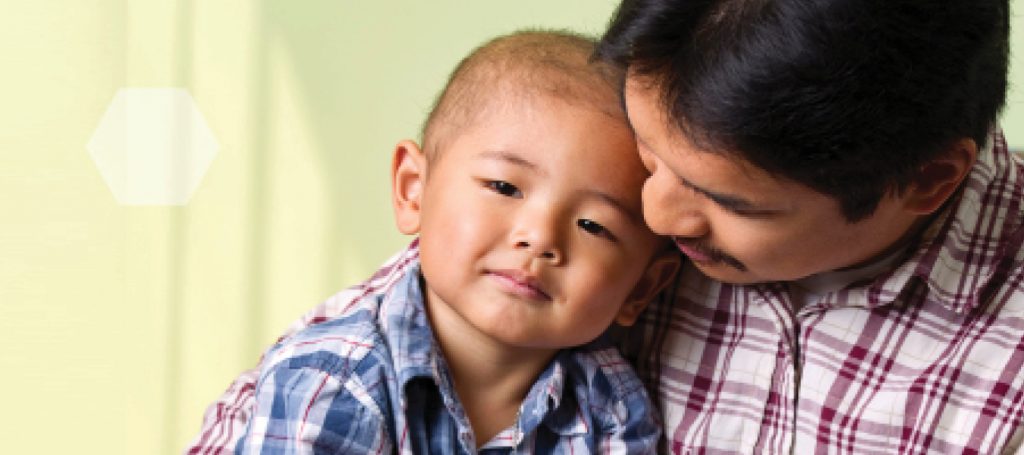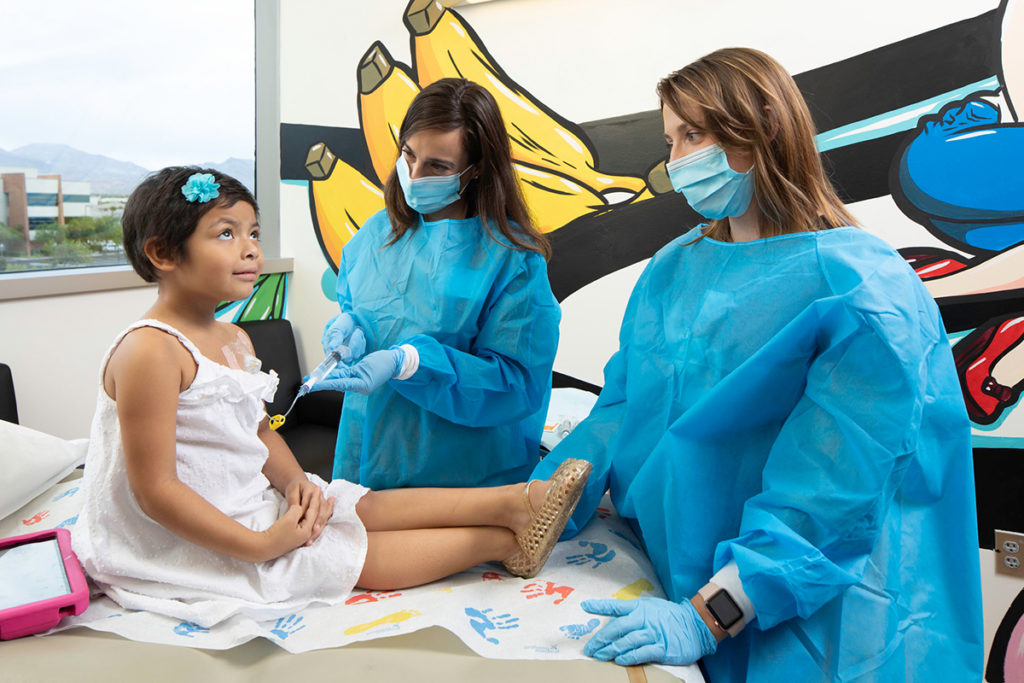Key Takeaways:
- The Childhood Cancer Data Initiative (CCDI) budget has doubled from $50 million to $100 million annually, representing the largest single funding increase for pediatric cancer data research.
- This funding will accelerate AI-powered research to improve diagnosis, treatment, and outcomes for children with cancer nationwide and in Nevada.
- The initiative prioritizes data sharing across hospitals to address the challenge that no single institution sees enough cases of rare pediatric cancers.
- Families maintain full control over their child’s health information while contributing to research that benefits future patients.
- Cure 4 The Kids Foundation is positioned to leverage this national investment to strengthen Nevada’s pediatric cancer research infrastructure.
On September 30, 2025, the U.S. Department of Health and Human Services announced a decision that will reshape the future of pediatric cancer research: the annual budget for the Childhood Cancer Data Initiative will double from $50 million to $100 million.
For the families we serve at Cure 4 The Kids Foundation—more than 7,000 children each year facing cancer and complex medical conditions—this announcement represents not just a budget increase but a national commitment to treating childhood cancer with the urgency and innovation it demands.

Why the CCDI Funding Increase Matters
Pediatric cancer remains the leading cause of disease-related death for children in the United States. Its incidence has increased by more than 40% since 1975, yet childhood cancers remain significantly underfunded compared to adult cancers. With only around 15,000 new cases diagnosed annually across the entire country, these diseases are rare enough that no single hospital—not even the largest children’s research centers—sees enough patients to fully understand optimal treatments.
This is where the Childhood Cancer Data Initiative becomes transformational. As Dr. Anthony Letai, who was sworn in as NCI Director on September 29, 2025, stated: “I cannot think of a better way to begin my tenure at NCI than to redouble our efforts to support our youngest patients and their families facing rare leukemias and other cancers. We will not stop until childhood cancer is a thing of the past.”
What is the Childhood Cancer Data Initiative?
Established in 2019, the CCDI operates through the National Cancer Institute to collect, generate, and analyze comprehensive data on childhood, adolescent, and young adult cancers. The initiative addresses a fundamental challenge in pediatric oncology: the rarity of these diseases makes traditional research approaches inadequate.
By pooling de-identified patient data from hospitals and treatment centers nationwide, CCDI enables researchers to:
- Identify patterns and treatment responses across thousands of cases rather than dozens
- Understand which therapies work best for specific genetic subtypes of pediatric cancers
- Reduce the time required to discover new treatment approaches
- Improve long-term survivorship outcomes by tracking patients over years and decades
- Focus research attention on ultra-rare pediatric cancers that previously lacked sufficient data
The initiative’s Molecular Characterization Initiative (MCI) already offers free comprehensive molecular testing for many pediatric cancers, providing immediate clinical insights for current patients while contributing de-identified results to benefit future research.

How AI Technology Accelerates Pediatric Cancer Research
The doubled funding specifically targets the integration of artificial intelligence to maximize insights from electronic health records and clinical data. President Trump’s recent executive order, “Unlocking Cures for Pediatric Cancer with Artificial Intelligence,” establishes a framework for bringing private-sector AI expertise into partnership with federal research institutions.
AI technology offers several advantages in pediatric cancer research:
- Pattern Recognition at Scale: Machine learning algorithms can analyze imaging, genetic data, and treatment outcomes across thousands of cases simultaneously, identifying subtle patterns that predict treatment response or complications before they occur.
- Accelerated Clinical Trial Matching: AI can quickly match children to appropriate clinical trials based on their specific tumor characteristics, potentially opening access to promising new treatments sooner.
- Predictive Analytics: Advanced algorithms can help oncologists anticipate side effects, complications, or disease progression, enabling proactive rather than reactive care.
- Drug Discovery: AI can analyze molecular data to identify new therapeutic targets or predict which existing medications might be effective against specific pediatric cancer subtypes.
Dr. Jay Bhattacharya, NIH Director, emphasized this potential: “By doubling down on this mission with AI, we are ensuring that state-of-the-art science is being leveraged to provide answers about these diseases that would otherwise be out of reach.”
What This Means for Nevada Children and Families
Nevada faces unique challenges in pediatric cancer care. As one of the fastest-growing states in the nation, our healthcare infrastructure must expand rapidly to serve families across vast geographic distances—from Las Vegas to Reno to rural communities throughout the state.
The CCDI funding increase creates specific opportunities for Nevada:
Strengthened Data Infrastructure: Cure 4 The Kids Foundation is working to strengthen Nevada’s pediatric cancer and rare disease data infrastructure. The CCDI’s increased budget is an investment that supports our efforts to ensure Nevada children benefit from cutting-edge research.
Access to National Networks: Increased funding can enable states like Nevada to participate meaningfully in nationwide research collaborations, ensuring kids in Nevada have access to the same quality of care and clinical trial opportunities available at major research hospitals.
Improved Rural Access: AI-powered diagnostic tools and treatment planning systems can extend specialist expertise to community hospitals and rural areas, helping even more Nevada children receive optimal care closer to home.
Enhanced Molecular Testing: Programs like the MCI provide Nevada families with free access to comprehensive genetic analysis, informing more precise treatment decisions by geneticists and doctors.
Privacy Protections and Family Control
One concern families understandably raise about data initiatives involves privacy. The CCDI maintains strict protections:
- All shared research data is de-identified, meaning personal information is removed before analysis
- Parents and guardians retain full control over their child’s health information
- Participation in data sharing for research purposes is voluntary
- Data security follows federal health information privacy standards (HIPAA)
- Consent processes clearly explain how information will be used and protected
Your child’s participation in advancing research never compromises their privacy or your family’s control over medical decisions.

How Cure 4 The Kids Foundation Will Support This National Investment
At Cure 4 The Kids Foundation, we recognize that national funding creates opportunities only when organizations like ours translate policy into practice. While this federal investment flows through the National Cancer Institute’s research programs, here’s how we’re working to ensure Nevada families benefit from the advances it creates:
Building Data Systems: Cure 4 The Kids Foundation is dedicated to continuously improving Nevada’s pediatric cancer and rare disease data infrastructure, enabling our state’s children to contribute to—and benefit from—national research advances funded through initiatives like CCDI.
Expanding Research Participation: We’re working to increase Nevada children’s enrollment in clinical trials and research studies, giving local families access to promising new treatments while contributing data that helps future patients.
Provider Education: We’re training our healthcare providers on new AI-powered diagnostic and treatment planning tools as they become available, ensuring consistent implementation across our state.
Advocacy for Equity: We’re actively advocating with federal agencies and policymakers to support ongoing and increased efforts to combat childhood cancer, including ensuring that funding reaches community hospitals and underserved populations, not just major research centers.
Family Support and Education: We’re committed to helping families understand how research advances might benefit their child’s specific situation, translating complex developments into practical information for treatment decisions.
Through our Charity Care Plan, we ensure that every family receives the same research-driven, high-quality care and treatment regardless of their financial situation. As new diagnostic tools and treatment options emerge from CCDI-funded research, we look forward to making them available to our patients.
A Call to Action: Building Nevada’s Pediatric Cancer Research Future
At Cure 4 The Kids Foundation, we’re proud to support data-driven efforts like CCDI that ensure every child’s experience contributes to better care for the next patient. But we cannot do this work alone.
We invite our community—healthcare partners, policymakers, researchers, donors, and families—to join us in building a stronger future for pediatric cancer research in Nevada. Whether through participating in research studies, advocating for continued investment in childhood cancer research, or donating to a child in need every contribution matters.

About the Author: Annette Logan-Parker brings over 30 years of experience in pediatric oncology to her role as Founder and Chief Advocacy & Innovation Officer at Cure 4 The Kids Foundation. She has dedicated her career to improving outcomes for children with cancer and ensuring equitable access to cutting-edge treatments for all families.















